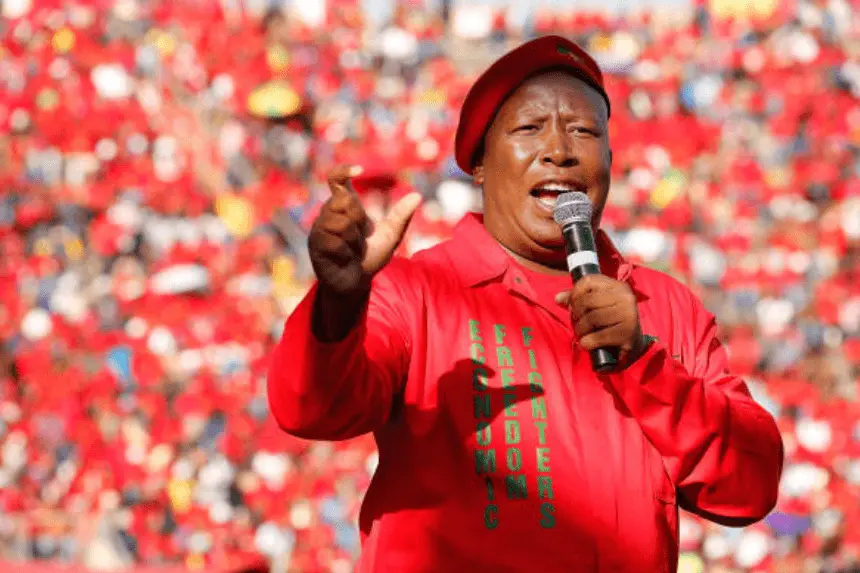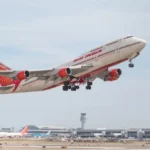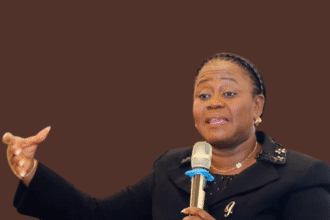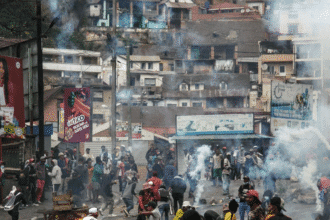The Malema UK entry ban has elicited much controversy that has been based on the issues of free expression, political extremism, and border policies in other nations. Julius Malema, the leader of Economic Freedom Fighters (EFF) party in South Africa was officially refused entry to the United Kingdom. The Home Office of the UK found his presence to be not conducive to the good of the people by relying on a speech that supports violence and is sympathetic to extremist organizations.
- The Decision to Block Malema by the UK: What Made Them Decide?
- How has the EFF Reacted to UK Government?
- Are the statements by Malema hate speech in South Africa?
- What are the greater political implications of this Ban?
- What has been the response to the Ban and what has changed?
- What Does it Mean Regarding the British Immigration and Foreign Policy?
- What does this spell for the political future of South Africa?
- Final Thoughts
The second ban in the last couple of months has once again brought into focus the concept of global diplomacy and race relations, as well as restrictions over stances as far as free speech is concerned, especially when there is a politically sensitive ideology at play.
The Decision to Block Malema by the UK: What Made Them Decide?
The decision of the UK Home Office is founded on an amalgamation of care. A large reason given behind the ban was the vocal support given by Malema to Hamas’s speech, given by him following the 7 October attacks. Malema is said to have told the people through the statement that his party would give Hamas weapons in case they managed to wield power at the national level in South Africa.
Moreover, his slogan, including the historical ones of killing the Boer, was questioned. Whereas the South African court held that the lyrics were not utterances of hate but were meant to be symbolic political expression, the UK saw it otherwise. British authorities quote previous remarks that, according to them, encourage ethnic violence and destabilization. All this contributed to the Malema UK ban on entry, and the Home Office had concluded that offering him an entry visa would be undesirable. Here is the link to our article on the Journalist Ban
How has the EFF Reacted to UK Government?
The EFF has issued serious criticisms of the ruling terming it as the action of cowardice and aimed at silencing international debate. Through a statement, the party contended that what Malema is expressing are only the simple frustrations of the marginalized Africans and do not amount to literal calls to violence.
The EFF underlined that they were not going to sell out their so-called revolutionary ideals in favor of visas or international acceptance. They said that the UK and all its allies are welcome to their visas and that they will retain their Africa and the promise of solidarity with the oppressed.
This language brings to the fore a greater ideological conflict between post-colonial African movements and the traditional Western systems of governance, an aspect that is enhanced by the Malema UK entry ban.
Are the statements by Malema hate speech in South Africa?
The judicial system of South Africa has made a decision that words such as Kill the Boer are not considered to be hate speech when it is in a political context. Such protest songs, though in some cases they are sung by politicians, are, according to the Supreme Court of Appeal, symbolic. They are viewed as instruments of expressing discontent, but not actual labels for violence.
A court emphasized that these would be reasonably perceived by a well-informed citizen as being in continuation of a national historico-political debate. This legal interpretation highlights a gap between home and international thinking against the rhetoric of Malema, which probably played a role in the Malema UK entry ban.
What are the greater political implications of this Ban?
Malema UK has not been allowed into the UK in a simple visa denial; the move displays underlying hostilities between the West and radical leftist African groups. Malema has been in persistent criticism of Western imperialism and a supporter of the white owned land redistribution as one of the forms of payback to apartheid and colonialism.
His position appeals to the larger number of South Africans who find themselves economically marginalized. Nonetheless, there is also a danger of destabilizing the international governments that seek stability and security. The step taken by the UK may be viewed as endorsed by the general trend of excluding foreign opinions that may be deemed as controversial or extreme.
At the same time, the move gives credence to the sentiments likewise harbored in the African liberation circles that Western governments are not keen to promote democracy and human rights. Here is the lin to our article on Benefit Fraud Ban
What has been the response to the Ban and what has changed?
South African response is divided. Those who criticize Malema praise the firm position of the UK, relating it to a limit on political extremism. Their line is that the language associated with racial division should not at all be entertained in the context of the culture.
Conversely, the fans of Malema consider the ban as outrageous on African sovereignty and political independence. They argue that the ruling is proof of intolerance to other worldviews, particularly ones that question colonial legacies.
Unemployment among the Black South Africans stands at 33%, and a majority of Malema true believers feel that now is the time to undertake radical change, and the fact that the world is frowning upon them only makes them more determined.
What Does it Mean Regarding the British Immigration and Foreign Policy?
The move by the UK to impose the Malema UK entry ban is part of the overall restriction of immigration in response to foreign populism and increased extremism. The Home Office has itself become obsessed with the effort to exclude those people who are viewed as threatening national security and social cohesion, one way or another.
This position also makes another statement to other foreign political leaders: that the UK is not afraid to oust people who push divisive or possibly destructive messages, in its opinion. Though this policy can be justified to some extent, critics caution that it becomes potentially dangerous in the sense that it will confuse dissent with danger, protest with provocation.
What does this spell for the political future of South Africa?
This entry ban on Malema UK can backfire massively on the EFF in terms of raising its profile within the country. A ban in a Western country can be a strong blow to the credibility of an anti-imperialist leader. To Malema, it may mean gaining the support of disillusioned voters, especially the youth.
But the decline of the party in rank to number four in the recent election also shows a rising threat of other populist leaders, such as the new political movement founded by former President Jacob Zuma.
Final Thoughts
The Malema UK entry ban highlights the complicated linkage of political speech and international relations to national security. Though the UK considers the rhetoric of Malema unacceptable, a significant number in South Africa perceive his rhetoric as a justified form of protest based on the historical injustice. Like this, such actions will remain divisive, with some hailing it as a fitting example of politics in the modern world, and others condemning it as a rise in extremes. Whether this ruling killed or boosted Malema remains to be seen, but one thing is a fact: it is another addition to the continuous discussion on race, power, and freedom of expression.








